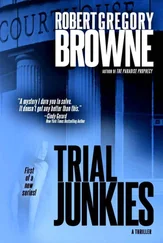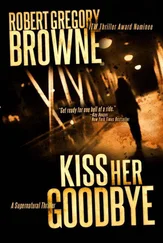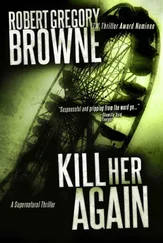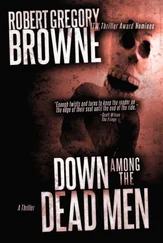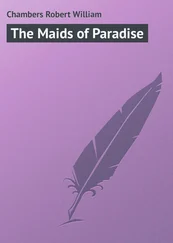Robert Browne - The Paradise Prophecy
Здесь есть возможность читать онлайн «Robert Browne - The Paradise Prophecy» весь текст электронной книги совершенно бесплатно (целиком полную версию без сокращений). В некоторых случаях можно слушать аудио, скачать через торрент в формате fb2 и присутствует краткое содержание. Жанр: Триллер, на английском языке. Описание произведения, (предисловие) а так же отзывы посетителей доступны на портале библиотеки ЛибКат.
- Название:The Paradise Prophecy
- Автор:
- Жанр:
- Год:неизвестен
- ISBN:нет данных
- Рейтинг книги:5 / 5. Голосов: 1
-
Избранное:Добавить в избранное
- Отзывы:
-
Ваша оценка:
- 100
- 1
- 2
- 3
- 4
- 5
The Paradise Prophecy: краткое содержание, описание и аннотация
Предлагаем к чтению аннотацию, описание, краткое содержание или предисловие (зависит от того, что написал сам автор книги «The Paradise Prophecy»). Если вы не нашли необходимую информацию о книге — напишите в комментариях, мы постараемся отыскать её.
The Paradise Prophecy — читать онлайн бесплатно полную книгу (весь текст) целиком
Ниже представлен текст книги, разбитый по страницам. Система сохранения места последней прочитанной страницы, позволяет с удобством читать онлайн бесплатно книгу «The Paradise Prophecy», без необходимости каждый раз заново искать на чём Вы остановились. Поставьте закладку, и сможете в любой момент перейти на страницу, на которой закончили чтение.
Интервал:
Закладка:
Robert Browne
The Paradise Prophecy
Death is the golden key that opens the palace of eternity.
-John MiltonBOOK I
Better to reign in Hell, than serve in Heav’n.
-Paradise Lost, 1667 ed., I:2631
FLORENCE, ITALY 1638
Before they met, he knew nothing of the book, or the story surrounding it.
He hadn’t known about its size or the scope of its contents or the blackening skin of its pages or the ornate, nearly perfect penmanship that adorned them. He hadn’t known that it was housed in Prague, in one of the collections of a Holy Roman Emperor, patron of the arts and practicing alchemist. He hadn’t known that a hundred and sixty donkeys had been slaughtered to further its creation.
And he was completely unaware of the seven missing pages.
The pages that would lead to his undoing.
But much to his regret, the poet learned these things and more on a visit to Florence-there in a small villa in Arcetri, where he first met the astronomer, a pale, bearded old man condemned to spend the last years of his life as a prisoner in his own home.
This was long before the evil days, before the darkness amid the blaze of noon. Back when the poet’s life had been truly blessed, when day-to-day living had not only been pleasurable, but was often exhilarating. When he was filled with the freshness of spirit that comes with youth and intellect and an unyielding belief in newly formed ideals.
He’d been quite surprised to receive the old man’s invitation, and after months of arduous travel, taking him from London to Calais, then on to Paris and Nice and Genoa, his first instinct was to send his apologies and return home to England.
But the astronomer not only possessed one of the finest minds known to man, he was, in many ways, a kindred soul. A follower of God, yet free in spirit. A believer in individual choice who abhorred tyranny of any kind, even when it wore prelatical robes.
And when the poet read the message waiting for him at his lodgings in Livorno, he knew it would be foolish to pass up this opportunity to further his education.
So he accepted the invitation and went to Florence.
A choice that would haunt him until his dying day.
The villa was tumbledown and smelled faintly of mildew, two guards standing watch at the front gates.
He was greeted at the door by a timid young maid who looked as if she’d come straight from the convent, here to do penance for some ungodly transgression. She averted her gaze as she introduced herself, and he wondered what sad demon possessed her that would prevent her from looking him in the eye.
“Please be gentle with him,” she said softly as she escorted him down a long hallway past a row of doors. “He hasn’t been well these last few weeks and he tires easily. And be warned. He has his good days and bad, and we never quite know which to expect.”
Her words surprised the poet. He had heard that, despite his age, the astronomer was still in complete control of his faculties. But perhaps the good days this young woman spoke of were filled with enough brilliance to outweigh the bad. The old man’s writings certainly reflected this.
They came to a stop at the end of the hallway and she opened a door, gesturing him into the room beyond. The shades were drawn to block out the afternoon sun, because no sun was needed.
The old man was blind. An affliction, the poet knew, he had suffered only recently.
But his hearing was good, and the moment the door swung open, he turned in their direction and said, “I cannot teach you anything. I can only put you on a course to self-discovery. What you find, and what you do with it, is up to you.”
He sat in a chair by a blazing fireplace, his blank eyes staring out at nothing. The poet stood there in the doorway, a bit confounded, feeling as if he’d walked into the middle of a conversation and not quite knowing how to respond.
Was the old man even speaking to him?
He decided his best course of action was simply to introduce himself, but as he began forming the words, the astronomer cut him off.
“I know who you are. I invited you here, remember?”
“Yes. Yes, of course,” the poet stuttered, feeling as if he’d just been chastised by his own father. “But to be quite frank, I’m not absolutely certain why.”
The old man softened then, waving a hand at him. “Come in, come in. Have a seat. You must be weary after such a long journey.”
This was certainly true. Traveling by horseback was never easy. The poet closed the door behind him, and with the aid of the light from the fire, he found a chair and pulled it close to the old man.
It was at that very moment that the regret began to overcome him. As he sat down, an inexplicable sense of darkness descended upon him, as if the Devil himself were hovering nearby, watching and waiting with great anticipation.
“I’ve read your work,” the astronomer said. “You strike me as a man of sound intellect, with a strong belief in God.”
“I could say the same of you.”
The old man shrugged. “There are those who claim I’ve rejected scripture in favor of science, but even after my arrest and the death of my daughter, my faith in God and nature has remained firm. Whatever the course of our lives, we should receive them as the highest gift from His hand. Don’t you agree?”
The poet nodded. “Of course. But I also believe the greatest liberty God has given us is the freedom to think and speak in whatever manner our conscience may guide us.”
“As do I, my son.”
“Which is why I find your confinement here nothing short of reprehensible.”
The old man waved a hand dismissively. “Those who keep me prisoner in this cage have small, fearful minds.”
“It would appear so, yes.”
“They huddle together protectively and use their faith as a shield, rejecting anyone who questions the sanctity of their petty narrow-mindedness.” He heaved a sigh. “But enough of such talk. I didn’t ask you here to discuss politics.”
The poet hesitated. “Then why, exactly, am I here?”
“We’ll get to that. But first, let me share with you the story of my most recent discovery. As a man of letters, I think you of all people will appreciate it.”
The poet raised his eyebrows, thinking of night skies and star clusters and wondering how someone who no longer had eyes could find much of anything out there. “What sort of discovery?”
The astronomer smiled, but it seemed forced, as if he were trying to hide some private fear that lay just beneath its surface. That sense of darkness grew deeper, and for a moment the poet wondered if he should flee this place and never return.
“I’ve found the pages,” the old man said, offering no further explanation.
The poet was confused, once again feeling as if he’d stepped into a conversation he hadn’t previously been part of. “Pages?”
Despite his blindness, something flickered in the astronomer’s eyes and they seemed to come alive. “The seven missing pages from the Devil’s Bible,” he said. “The seven missing pages that, if placed into the right hands, will change the universe forever.”
The poet couldn’t leave the villa fast enough.
What he had hoped would be the highlight of his travels-an afternoon of fine wine and poetry and conversation with one of the great men of his time-had turned out to be anything but.
Instead he had witnessed what he believed to be one of the astronomer’s bad days and found himself listening to the tale of a thirteenth-century Benedictine monk who had broken his monastic vows and was sentenced to be walled up alive-an image that gave the poet considerable pause.
Читать дальшеИнтервал:
Закладка:
Похожие книги на «The Paradise Prophecy»
Представляем Вашему вниманию похожие книги на «The Paradise Prophecy» списком для выбора. Мы отобрали схожую по названию и смыслу литературу в надежде предоставить читателям больше вариантов отыскать новые, интересные, ещё непрочитанные произведения.
Обсуждение, отзывы о книге «The Paradise Prophecy» и просто собственные мнения читателей. Оставьте ваши комментарии, напишите, что Вы думаете о произведении, его смысле или главных героях. Укажите что конкретно понравилось, а что нет, и почему Вы так считаете.

